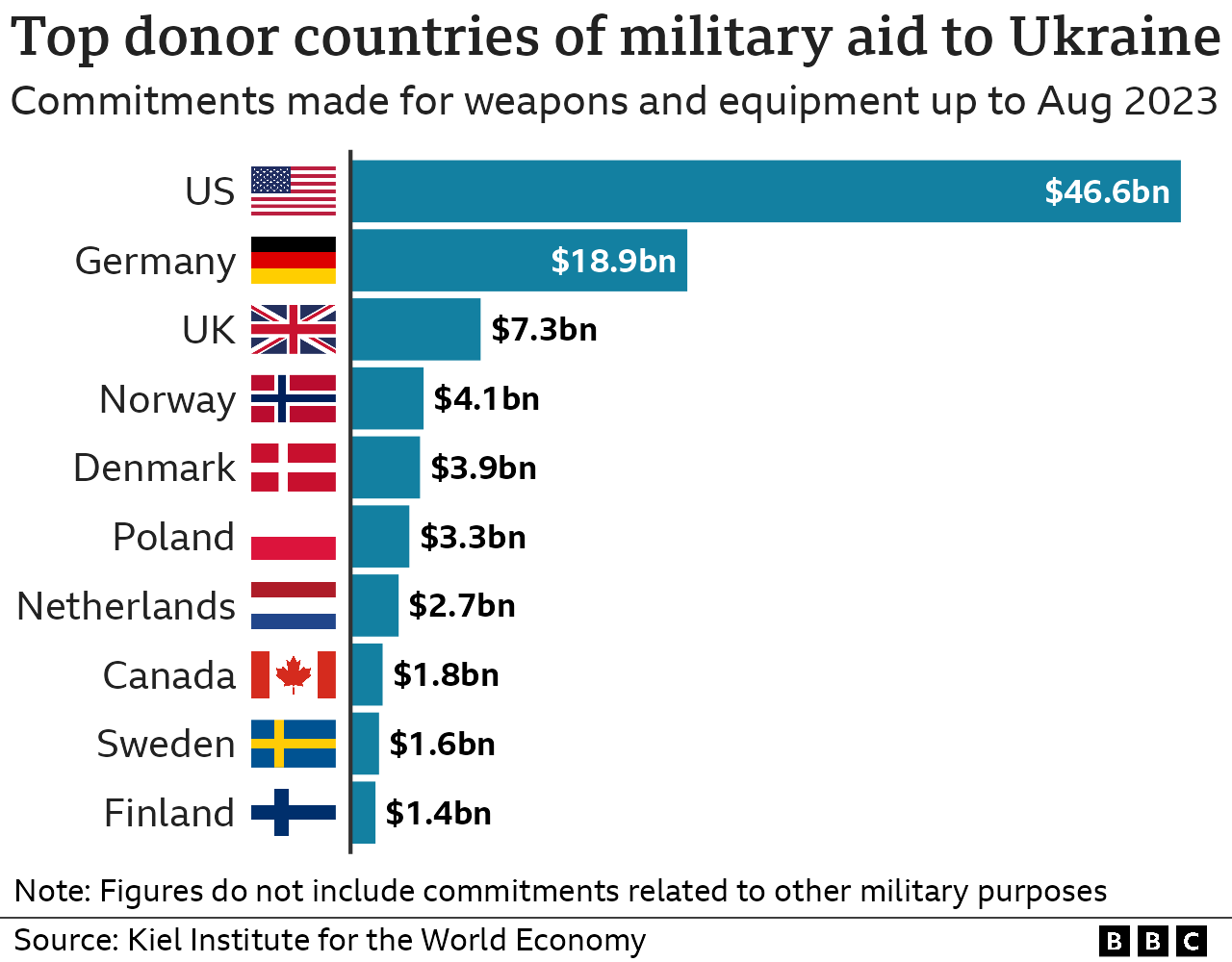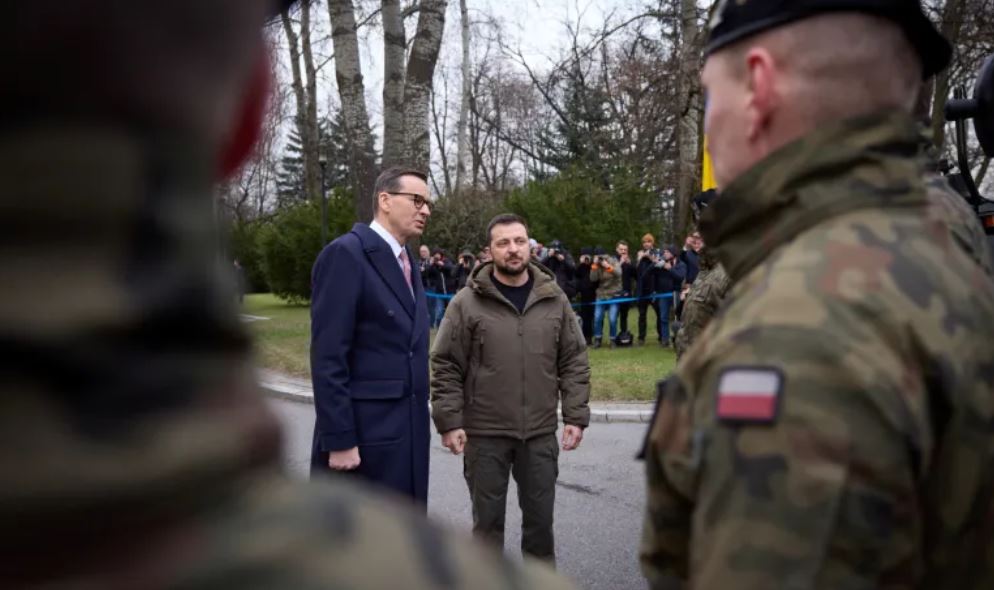One of Ukraine`s staunchest allies, Poland, has said it is no longer supplying weapons to its neighbour, as a diplomatic dispute over grain escalates.
Prime Minister Mateusz Morawiecki said Poland`s focus was instead on defending itself with more modern weapons.
Poland has already sent Ukraine 320 Soviet-era tanks and 14 MiG-29 fighter jets and has little more to offer.
However, the remarks coincide with high tensions between the two neighbours.
On Tuesday, Poland summoned Ukraine`s ambassador over comments made by President Volodymyr Zelensky at the United Nations after Poland, Hungary and Slovakia extended a ban on Ukrainian grain.
Mr Zelensky said it was alarming how some of Ukraine`s friends in Europe were playing out solidarity "in a political theatre - making a thriller from grain". Warsaw denounced his words as "unjustified concerning Poland, which has supported Ukraine since the first days of the war".
Mr Morawiecki was interviewed on Wednesday night by the private Polsat news TV channel hours after the Ukrainian ambassador had been summoned to the foreign ministry in Warsaw in response to the Ukrainian leader`s speech.
"We are no longer transferring weapons to Ukraine, because we are now arming Poland with more modern weapons," the prime minister said.
He was adamant Poland was helping Ukraine defeat the "Russian barbarian" by maintaining a military hub, but would not agree to Poland`s markets being destabilised by grain imports, Polish state news agency Pap reported.
"Our hub in Rzeszow, in agreement with the Americans and Nato, is fulfilling the same role the whole time as it has fulfilled and will fulfil."
Poland`s military hardware has been depleted by about a third through transfers to Ukraine and is in the process of replacing it with modern Western-produced kit.
Arms exports to Ukraine will not stop completely as Polish manufacturer PGZ is due to send about 60 Krab artillery weapons in the coming months. Government spokesman Piotr Muller later clarified that only previously agreed deliveries of ammunition and armaments would be delivered, including those from contracts signed with Ukraine.
Asked about the prime minister`s comments, Polish state assets minister Jacek Sasin told Radio Plus on Thursday that "at the moment it is as the prime minister said - in the future we will see".
Poland`s ruling Law and Justice party has stepped up its rhetoric in recent weeks in the heat of an acrimonious election campaign, ahead of a 15 October vote, and it has sprung to the defence of Polish farmers who feel threatened by imports of Ukrainian grain.
Russia`s full-scale invasion forced Ukraine to find alternative, overland routes when the main Black Sea shipping lanes were all but closed.
That in turn led to large quantities of grain ending up in Central Europe.
Consequently, the European Union temporarily banned imports of grain into five countries, Bulgaria, Hungary, Poland, Romania and Slovakia, to protect local farmers, who feared Ukrainian grain was driving down the prices locally.
When the ban ended on 15 September, the EU chose not to renew it, but Hungary, Slovakia and Poland have maintained the ban, despite the European Commission emphasising it was not up to EU member state to decide broader trade policy.
Earlier this week, Ukraine filed lawsuits to the World Trade Organization (WTO) against those countries over the bans, which it said were a violation of international obligations.
Ukraine`s Economy Minister Yulia Svyrydenko said that it was "crucially important for us to prove that individual member states cannot ban imports of Ukrainian goods".
But Poland said they would keep the ban in place, and a "complaint before the WTO doesn`t impress us".
Mr Morawiecki said they would increase the number of banned products from Kyiv if Ukraine escalated the grain dispute. Poland`s foreign ministry added that "putting pressure on Poland in multilateral forums or sending complaints to international courts are not appropriate methods to resolve differences between our countries".
Despite the ban, the three countries said they would still allow grain to be transported through them to other markets.
Kyiv called for Poland to "leave emotion aside" after their ambassador was summoned and instead suggested the parties should adopt a constructive approach to resolving the dispute.
The French Foreign Minister Catherina Colonna said on Wednesday that an EU study revealed Ukrainian grain imports would not cripple European farmers, and described the tensions as "regrettable".
Poland has provided much support to Ukraine as it defends itself against Russia, urging Germany to provide the country with Leopard 2 battle tanks, pledging fighter jets to the country and welcoming more than 1.5m refugees from Ukraine.





-20260304091720.webp)



-20260303080739.webp)
-20260302065048.webp)

















-20260225072312.webp)





-20260228064648.jpg)
